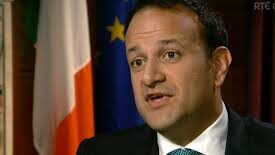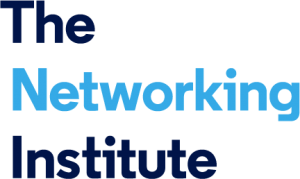Leo Varadkar and Ireland Inc.
Possibly the most interesting announcement Leo Varadkar has made since becoming Taoiseach was the decision to double Ireland’s international presence over the next decade. Through more embassies and agencies the focus will be on investment, tourism, culture and food. The announcement didn’t attract a whole heap of attention but it has the potential to have major positive consequences. In fact, some of it will merely help Ireland catch up with other similar small countries whose overseas representative footprint is significantly larger. Ireland, currently with 80 missions abroad, lags behind Sweden with 104, Denmark with 105 and Holland with 141.
More significantly, this decision reflects the dynamics of a shifting global environment and the fallout from ‘Brexump’. Put simply, in a fast-changing and brutally disruptive world, we need our friends around the world –we need the connections and we need the networks. These friends will have our back and be effective ‘tipping agents’ who can ‘nudge’ deals Ireland’s way. One unique element Ireland has is a massive and influential diaspora as a result of over 10 million people leaving this island. We have been fortunate that technology and communications have now transformed this Diaspora and our relationship with them. In the old days when you emigrated you were gone and you were gone for good. Absence equalled exile and your geography dictated your identity. Emigration was final, brutal and sad, and, in some cases today, it still is. However now, we say, geography is history and people are both ‘here and there’ and living hyphenated lives as in American-Irish, Australian-Irish or, indeed, British-Irish. Irish people and migrating go together but the economic recovery is enticing large numbers back – a good example of brain drain becoming brain gain and brain exchange. Often they return with newfound skills, contacts, resources and confidence. Ironically the countries that suffered the most from emigration are now in a position to benefit the most. With 17% of the people born in Ireland now living overseas and 17% of the current population of Ireland not born in Ireland, we have a most intriguing and diverse population mix that is throwing up fascinating possibilities around connecting and networking. This is not unique to Ireland (but some of the statistics are) but we do have the opportunity to become world-class in this area and see our Diaspora not as ‘lost actors’ but as ‘national assets’. If we become world leaders in this Diaspora space, and there is no reason why not, then the world will beat a path to our door. Over 100 countries (and also regions and cities) are trying to figure out how to do this well and we can show them and help them. We, in Diaspora Matters, have worked with over 30 countries and cities – all of whom look to Ireland as a leader in this field whether it be for trade and investment, education and tourism, sport and the arts. Indeed, African countries like Kenya and Malawi, see this as a key way Ireland can help them develop – to show them how to connect with their own global diasporas. This then could be the modern equivalent of our own historic missionary involvement with Africa. With over half of the graduates of Africa living outside of Africa the potential is obvious. We’re not producing any more missionaries but this could be a logical extension of a past we can be proud of.
The old binary relationships of people emigrating and money being sent home are being replaced by more nuanced connections. Now, it is more important what you do than where you are. Connectivity is instant and continuous so new networks of common interest are emerging where people of like-minded interests can congregate online and offline. Sporadic communication has been replaced by constant and instant connectivity. The age-old question that is asked of all diasporas – Who are they, Where are they and What are they doing’ is finally beginning to be answered. This is having a hugely liberating effect. The key to success in this new age is being able to harness the best ideas and innovations from around the world and apply them.
Princeton’s Professor Anne Marie Slaughter, formerly with the US State Department, focused particularly on this topic when she said “the information age is over – we now live in the networked age. We are moving from the vertical world of hierarchies to the horizontal world of networks. In this world the measurement of power is connectedness. In the 21st century, the state with the most and best connections will be the central player able to set the global agenda, and unlock innovation and sustainable growth. Networked clusters of the world’s most creative people increasingly drive the world economy. Only the connected will survive. Networked power comes from the ability to make the maximum number of valuable connections and the key is centrality in a dense global web. The world is more a mosaic than a melting pot. Now, where you are from means where you can and do go back and who you know and trust enough to network with”.
This dynamic is particularly being seen in cities as the world is fast heading to be an urbanised coastal civilisation – it is estimated that by 2030 seventy per cent of the world’s population will live in cities within 15 miles of the sea. With 150 countries having populations of less than 10 million they are acting more like city regions than nation-states. It is interesting to see a city like Copenhagen establishing a worldwide network of 70 Copenhagen Goodwill Ambassadors to promote the city globally for trade, investment, education, culture, art and sport. Similar to Hamburg. All cities and regions should do this and we are seeing it happen now on a county level in Ireland. Diaspora is all about the place rather than just the country.
The Taoiseach referred to Ireland’s ambition to be an ‘island at the centre of the world’. In effect, we can become the ‘junction box’ of that world and remain sufficiently nimble and agile to survive and thrive in a hyper-connected multipolar world. The key then is connectivity and building networks which will allow us to escape the destiny of geography. This country has never been in a better place to build an ‘empire of the mind’ through its global connections. The Taoiseach was right – now is the time.



